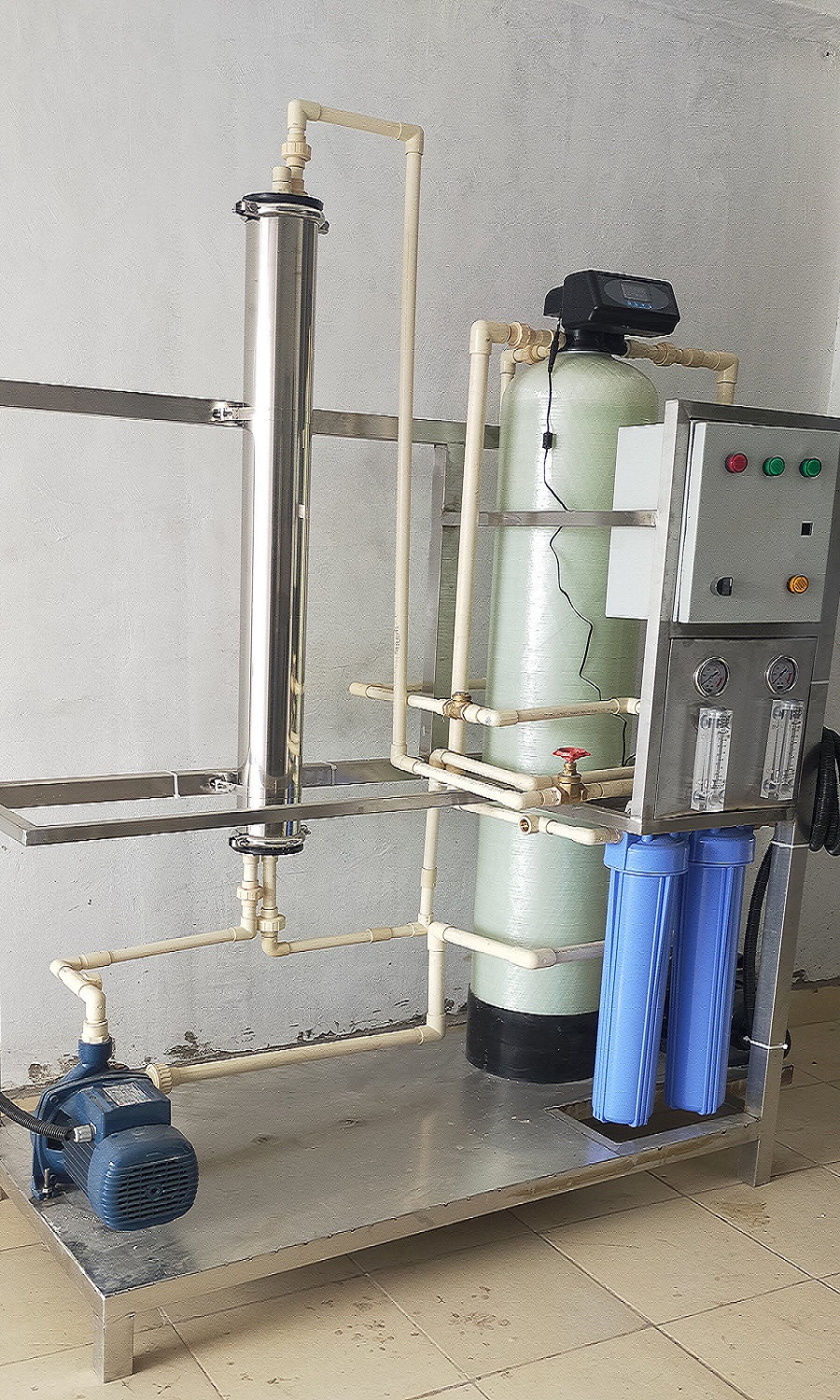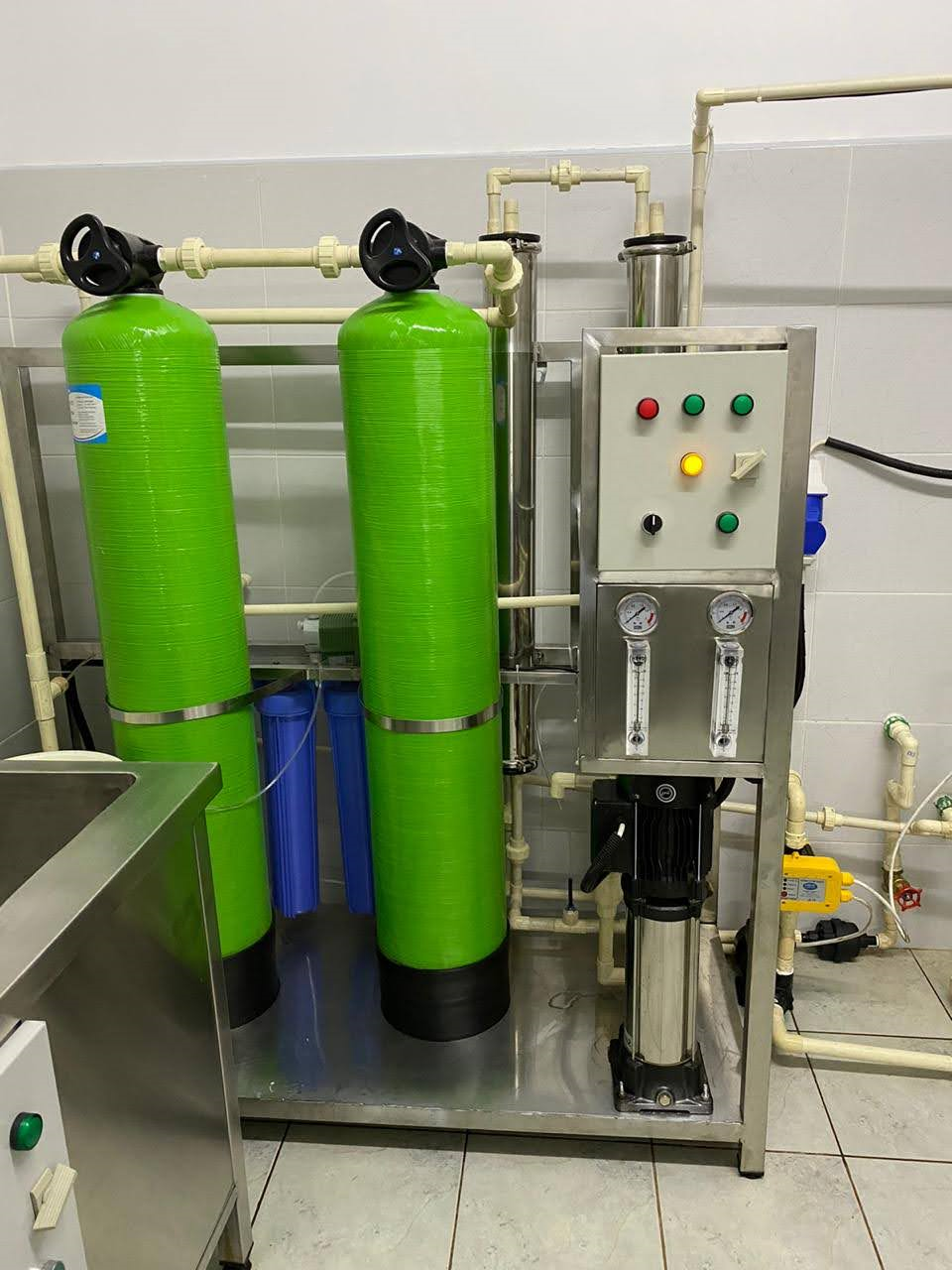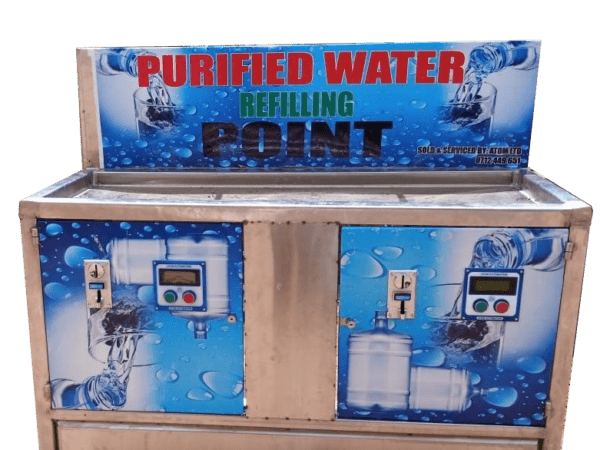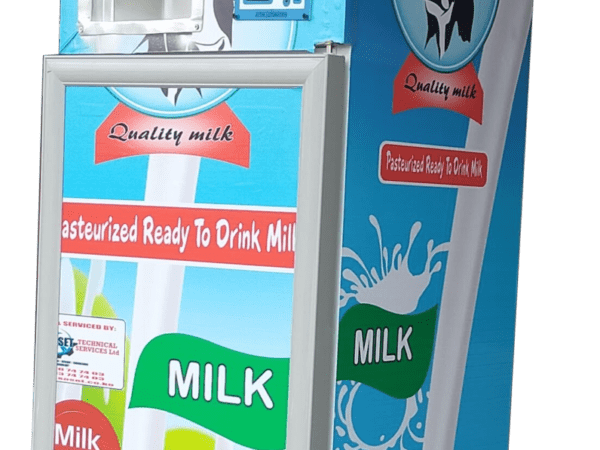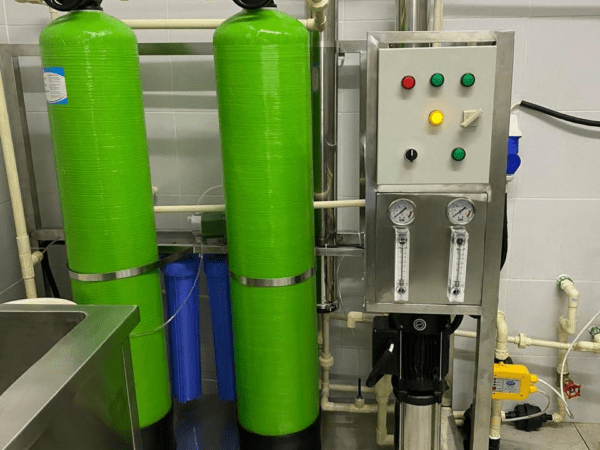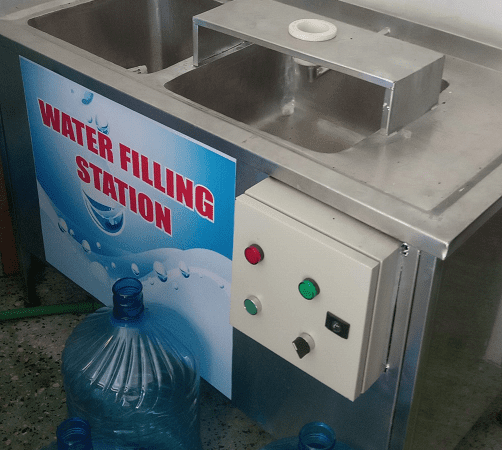Reverse Osmosis System- For Low Fluoride & TDS
At Saset Ltd, we are experts and market leaders in manufacturing of reverse osmosis water purifiers, water vending machines and equipment in Kenya. The Saset reverse osmosis systems for water with less fluoride, iron & suspended solids are the best quality water purification machines in Kenya and highly sought after by water vending business, hospitals, beverage making companies among other businesses that need highly purified water.
The RO systems are suitable for treating the following types of water:
- Borehole water: This is water that is extracted from underground aquifers using a borehole or a well. Borehole water may contain low levels of fluoride, iron, salinity, hardness, and other contaminants that affect its taste, quality, and safety. The RO systems can remove these impurities and produce clean and safe drinking water.
- Saline water (sea/ocean water): This is water that has a high concentration of dissolved salts, mainly sodium chloride. Saline water is not suitable for human consumption or irrigation, as it can cause dehydration, health problems, and soil degradation. The RO systems can desalinate saline water and make it fresh and potable.
- Dirty river water: This is water that is collected from rivers or streams that may be polluted by human or animal activities, industrial waste, agricultural runoff, or natural disasters. Dirty river water may contain harmful bacteria, viruses, parasites, chemicals, metals, and organic matter that can cause diseases and infections. The RO systems can filter out these pollutants and purify dirty river water.
Saset Reverse Osmosis System- For treating water with less fluoride, iron & suspended solids.
They comprise of the following water filters:
- Filter for sand: This is a filter that uses sand or gravel to trap and remove the large particles and sediments from the raw water. Filter for sand improves the clarity and quality of the water and protects the RO membranes from fouling.
- Filter made of activated carbon: This is a filter that uses activated carbon to adsorb chlorine, organic compounds, odors, tastes, and other contaminants from the sand-filtered water. Filter made of activated carbon also improves the taste and odor of the water and prolongs the life of the RO membranes.
- Filter for sediment: This is a filter that uses a fine mesh or a membrane to remove the small particles and sediments from the carbon-filtered water. Filter for sediment further enhances the quality of the water and prevents clogging of the RO membranes.
- Microfiltration filter for microbes: This is a filter that uses a very fine membrane to remove the microorganisms such as bacteria, viruses, and parasites from the sediment-filtered water. Microfiltration filter for microbes ensures the safety and hygiene of the water and prepares it for reverse osmosis.
They have the following features:
- Sand filtration: This is a process of passing the raw water through a bed of sand or gravel to trap and remove the large particles and sediments. Sand filtration improves the clarity and quality of the water and protects the RO membranes from fouling.
- Activated carbon filter: This is a process of passing the sand-filtered water through a bed of activated carbon to adsorb chlorine, organic compounds, odors, tastes, and other contaminants. Activated carbon filter also improves the taste and odor of the water and prolongs the life of the RO membranes.
- Sediment filters: These are filters that use a fine mesh or a membrane to remove the small particles and sediments from the carbon-filtered water. Sediment filters further enhance the quality of the water and prevent clogging of the RO membranes.
- Reverse osmosis plant: This is a plant that uses high pressure to force the microfiltered water through a semi-permeable membrane that allows only pure water to pass through while rejecting most of the dissolved salts, minerals, metals, and other impurities. Reverse osmosis plant produces highly purified water that meets the highest standards of quality.
- Micro filtration: This is a process of passing the sediment-filtered water through a very fine membrane to remove the microorganisms such as bacteria, viruses, and parasites. Micro filtration ensures the safety and hygiene of the water and prepares it for reverse osmosis.
- UV disinfection Pretreatments (i.e., chlorination, antiscalant, ph adjustment dosing): These are treatments that are applied to the raw water before it enters the RO system to improve its quality and performance. UV disinfection kills any remaining microorganisms in the purified water using ultraviolet light. Chlorination adds chlorine to the raw water to disinfect it and kill any microorganisms that may be present. Antiscalant prevents scaling or deposition of minerals on the RO membranes by inhibiting their crystallization. PH adjustment dosing adds chemicals such as soda ash or caustic soda to adjust the pH level of the raw water to prevent corrosion or scaling of the RO membranes and pipes.
- Capacity ranges from 200ltrs/h — 1000 ltrs/h: This means that the RO systems can produce different amounts of purified water per hour depending on their size and configuration. The capacities range from 200 liters per hour to 1000 liters per hour.
Order the Saset reverse osmosis water purifier for treating water with less fluoride, iron & suspended solids from us today
To order a Reverse Osmosis water purifier for treating water with less fluoride, iron & suspended solids from Saset Ltd, you can use any of the following methods:
- Call us: You can call us at +254 727 38 48 26 or +254 101 74 74 47 and speak to one of our friendly and helpful staff. They will guide you through the ordering process and answer any questions you may have.
- Use WhatsApp: You can also use WhatsApp to send us a message at +254 727 38 48 26 or +254 101 74 74 47. You can send us your name, location, and the product you want to order. We will reply to you as soon as possible and confirm your order.
- Send an email: You can also send us an email at info@saset.co.ke with your name, location, and the product you want to order. We will reply to you within 24 hours and confirm your order.
- Use the contact form: You can also use the contact form on our [contact us] page to place your order. You just need to fill in your name, email, phone number, location, and the product you want to order. We will get back to you shortly and confirm your order.
You can also search for us on Google or visit our office/showroom in Ruiru, Kimbo, Thika Road, at the Toll Station bus stop. We are next to the Rubis Petrol station.
We look forward to hearing from you and serving you with our quality products and services.



